-
Ladies, gentlemen, please. "Calm down. It's only a commercial". One set of results does not prove anything and should not be used to jump to conclusions.
The improvement in boot time at work does not prove that squashfs is faster than cloop. It is an unexplained side affect. The slow part of the boot is the udevprobing. Why should that be hitting the compressed file system ? After the green bar has gone as far as it will, the spinner shows the system is still working. It spins for a long time with cloop but not with squashfs. Comments in /etc/init.d/knoppix-autoconfig suggest to me the boot is waiting for i/o activity to die down. What i/o I don't know - the VirtualBox console indicator shows no USB i/o at this time.
I did say (perhaps not clearly) that I used the Squeeze version of mksquashfs, which depends (have a look on the Debian repository web-site) on a gzip library, not an lzma library. Ergo, I used gzip compression. The same web-site shows the Sid version of mksquashfs, depends on several compression library packages, including liblzo2-2, which supports lzma and lzma2 compression.
kl522 says that Linux kernel 2.6.38 contains lzma compression but I am using Knoppix 6.4.3, which runs atop Linux kernel 2.6.36. I infer that had I used lzma compression, I would not have been able to boot my squashed file system.
There are some that say cloop requires more memory than squashfs. Perhaps, I don't know but the arguments for this that I have read so far appear specious to me.
Linux manages the disk cache. If memory isn't required for anything else, Linux will use it to cache disk contents but as soon as memory is required for something else it will free up disk cache. This is why, with two otherwise identical machines, the one with the more memory will appear to run faster. It is also why, at the time, Linux 'ran faster' than Windows 98.
The disk cache management is independent of squashfs and cloop. Because cloop is a loop device, data gets cached twice - once before and again after decompression (also true of knoppix-data.img but without the decompression). This is given as 'proof' that cloop requires more memory than squashfs. Poppy-cock.
Somehow, somewhere, squashfs must be buffering (aka caching) data before decompression. If its cache is too small, it will have to 'hit the disk' more often. Might use less memory, but that would make it slower.
Block size might be more significant and might give different results for different users. I used 64 Kb blocks from the cloop example on the Wiki. The squashfs man page says its default is 128 Kb. kl522's examples appear to be using 256 kb.
Now, if you are starting up mega Windoze-like applications that require tens of Mb to display an OK button, big blocks are probably going to make your app start-up faster. How often do you start these programs ? Once per session, so you don't need the disk cache.
If you are a sentimental old Unix fuddy-duddy who is reluctant to say goodbye to the power and productivity of the old command line interface, you want the disk cache to cache the commands you use a lot. The very idea that typing 'pwd' might cause squashfs to go off and read a 256 kb block and decompress it into a memory 'block' twice that size in order to run a program of only 25 kb in size is embarassing.
 Posting Permissions
Posting Permissions
- You may not post new threads
- You may not post replies
- You may not post attachments
- You may not edit your posts
-
Forum Rules


Cisco SG300-52-Port Gigabit Managed Rack Mountable Network Switch
$44.95
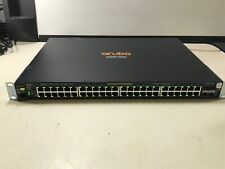
ARUBA J9772A 2530-48G PoE+ 48 PORT ETHERNET SWITCH W/ RACK EARS J9772-60301
$140.23
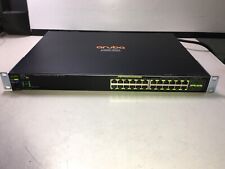
HPE ARUBA 2530-24G J9773A PoE+ 24-PORT GIGABIT ETHERNET SWITCH J9773-60201
$93.24
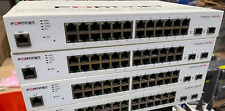
Fortinet FortiSwitch FS-124D-POE 24 Port Gigabit Ethernet Switch UNREGISTERED
$99.97

TP-LINK TL-SF1005D 5-Port 10/100Mbps Desktop Switch
$8.99

NETGEAR GS108 ProSafe 8-Port GbE Unmanaged Switch w/ Power Adapter
$14.99

TP-Link TL-SG108 8-Port 10/100/1000 Mbps Gigabit Ethernet Desktop Switch FREE SH
$14.99

Netgear GS110TP ProSafe 8Port Gigabit Smart Switch w/ PoE & Fiber Uplink
$35.16
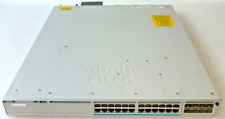
Cisco Catalyst C9300-24UX-A 24 Port 10G/mGig UPOE Network Switch + NM-8X Module
$579.97
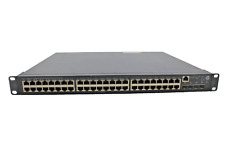
HP JG937A Flexnetwork 5130-48G PoE+ 48-Port Gigabit Network Switch
$56.99



 Reply With Quote
Reply With Quote










